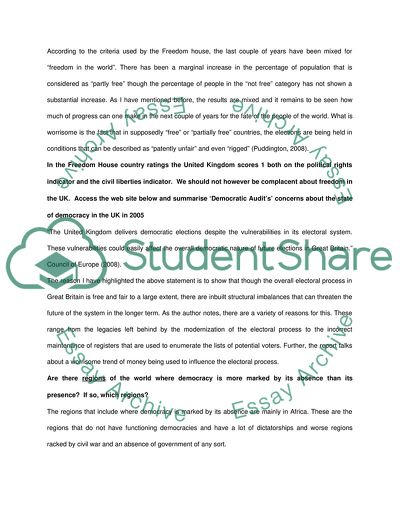Cite this document
(Electoral and Liberal Democracy Assignment Example | Topics and Well Written Essays - 1500 words, n.d.)
Electoral and Liberal Democracy Assignment Example | Topics and Well Written Essays - 1500 words. https://studentshare.org/politics/1718614-politics-and-government
Electoral and Liberal Democracy Assignment Example | Topics and Well Written Essays - 1500 words. https://studentshare.org/politics/1718614-politics-and-government
(Electoral and Liberal Democracy Assignment Example | Topics and Well Written Essays - 1500 Words)
Electoral and Liberal Democracy Assignment Example | Topics and Well Written Essays - 1500 Words. https://studentshare.org/politics/1718614-politics-and-government.
Electoral and Liberal Democracy Assignment Example | Topics and Well Written Essays - 1500 Words. https://studentshare.org/politics/1718614-politics-and-government.
“Electoral and Liberal Democracy Assignment Example | Topics and Well Written Essays - 1500 Words”. https://studentshare.org/politics/1718614-politics-and-government.


